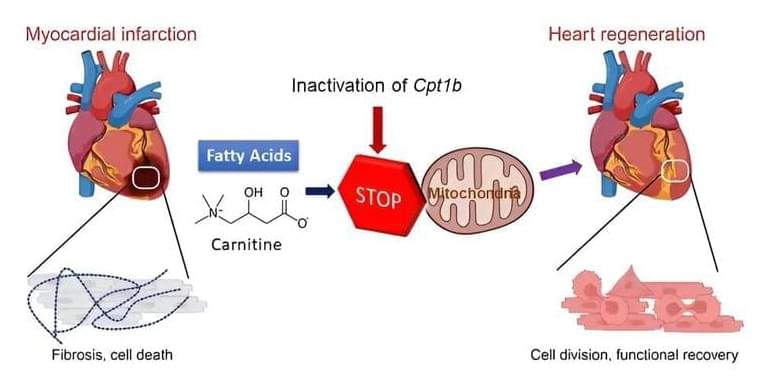After birth, the human heart loses its regenerative capacity almost completely. Damage to the heart muscle—for example, due to a heart attack—therefore usually leads to a permanent loss of function in adults. Scientists from the Max Planck Institute for Heart and Lung Research have now shown for the first time in mice that a change in the energy metabolism of heart muscle cells enables heart regeneration.
In the animals, heart function could thus be restored to a large extent after a heart attack. The study, published in the journal Nature, is groundbreaking and could enable completely new therapeutic approaches.
The loss of regenerative capacity in adults hearts is due, among other things, to the loss of the ability of heart muscle cells to divide after birth. This is accompanied by a fundamental change in the energy metabolism of the heart cells: Instead of obtaining energy from sugars, which is known as glycolysis, the heart muscle cells now obtain their energy largely from fats. This form of energy production is known as fatty acid oxidation.










Comments are closed.